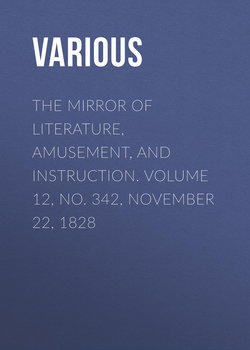Читать книгу The Mirror of Literature, Amusement, and Instruction. Volume 12, No. 342, November 22, 1828 - Various - Страница 5
COUNCIL OFFICE, &c. WHITEHALL
LOCUSTS AND WILD HONEY
Оглавление(For the Mirror.)
It has not been till lately that any of the travellers into Palestine have told what was meant by the locusts mentioned by St. Matthew as part of the food of John the Baptist. Dr. Clarke first related, that a tree grows in the Holy Land, which is called the locust tree, and produces an eatable fruit; but this fact was well known to many who had been in the Mediterranean. The tree grows in several of the countries which border that sea. It has been found in much greater abundance in some parts of the East Indies, whence it has now become an article of export. Many thousands of its pods are annually imported by the East India Company; and, either because the fruit is richer in more southern climates, or for some other reason, a great quantity of them are shipped for Venice and Trieste, where there is distilled from them a liquor, which is supposed to be an antidote to the plague, or at least useful in curing it. These pods are about twenty inches long, and from half to three-quarters of an inch in diameter. We call them pods for want of a term which would more accurately describe them; but they are not flat, neither have they that sort of hinge on one side, and slight fastening on the other, which plainly show how the shells of peas and beans are to be opened. On the contrary, these are round; but there are two opposite lines along them, where the colour alone would induce any one to suppose the skin to be, as it is, thinner than elsewhere. Having the fruit before us only in a dry state, we can describe it in no other; but at present a knife could scarcely be made to penetrate the thicker part, and does not very easily make its way into the thinner. The fruit, which lies in little cells within, is a pulp, or paste, somewhat like that of tamarinds, but smoother, and not so sweet. There are pips in it nearly as hard, and about half as large, as those of a tamarind, containing a kernel in each. It should be added, that in the stems of this locust tree wild bees still deposit their honey.
W.G.C.
